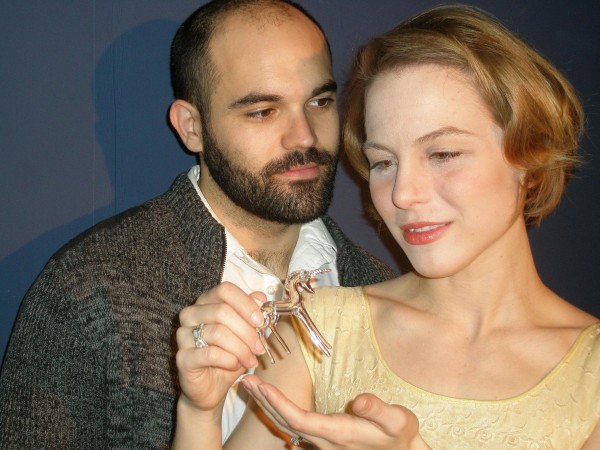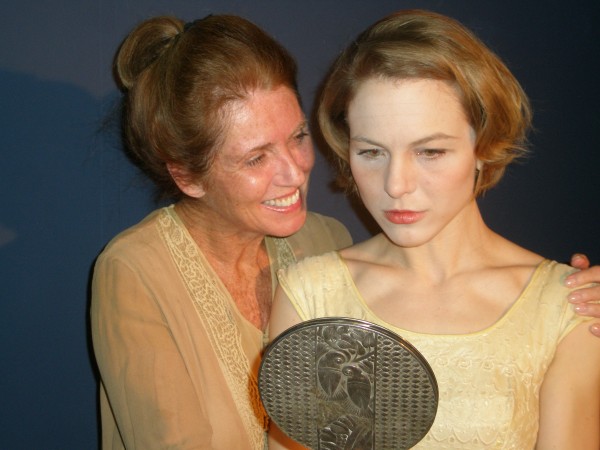
Tennessee Williams’ classic and memory-laden “The Glass Menagerie” gets its dramatic due at Coach House Theatre
One of the things you have to come away with after watching Coach House Theatre’s production of the master playwright Tennessee Williams’ famous and classic drama, “The Glass Menagerie,” is the overwhelming and oppressive notion of the struggle in these characters’ lives.
Much is said about the idea of memory. The production begins with one of the characters, son Tom Wingfield (played by Joe Pine with alternating bravado and beaten-downness), as narrator before he enters the action. He says things about the unreality of what we are about to see, and that all of the characters are bound with their memories – beginning with the absent father, whose photograph looms over the small apartment they all share.
That motif/symbol signals another overbearing notion – that of abandonment. The father left them years before, something that none of them forgets nor particularly wants to remember. Wife Amanda Wingfield (played with charm and great passion by Dede Klein) is a southern belle who was brought up in a rural, planter society world that no longer exists, yet she seems to know exactly how to fare and survive in the world without a man, even though she was raised to think that someone must do it for her. In a way, she ultimately drives her son to follow in his father’s footsteps.
Tom’s notions of thriving are bound up in being an unpublished poet. That won’t get you far.
Dede Klein and Tess Burgler in “The Glass Menagerie.” Photo courtesy of Coach House Theatre
The characters seem to be caught, frozen in their inability to cope – a condition epitomized by the daughter Laura (played with palpable fragility by Tess Burgler), whose main interaction in the world is with her glass menagerie. The collection functions as a symbol of her delicate and fragile nature, but also at her inability to connect with other people, as it does for Tom and Amanda as well.
The action of the play for these desolate and emotionally crippled people is centered on a gentleman caller, any gentleman caller, who can come and save them from themselves. Amanda rattles on and on about the old days when men of substance and promise made their way to her door. Any of them could have set out a respectable life for her.
She wants the same for her daughter, who is excruciatingly shy and unable to be the social butterfly her mother was.
In the second act, the young man appears. He’s a working friend of Tom’s, a former heartthrob of Laura’s, and a disappointment to himself. The character Jim, played somewhat brashly and energetically by Jeremy Jenkins, has all the requisite character traits – an upbeat manner, drive, workable social skills, and a certain charm and physical appeal, among other things. He also has a fiancé and plans to marry soon, thus dashing everyone’s hopes – Amanda of a financial savior for them all, a means of lifting the burden of the family for Tom, and a chance at happiness for Laura.
When he exits the stage, the audience knows it’s all over for them.
Williams’ play isn’t exactly optimistic (even with the bits of humor that break into the plot), but neither were the times of the action (the waning days of the Depression era), or the social conditions for people who were living way out of their element.
Director Nancy Cates mined the emotional tones of the play, pulling from all the actors a uniformity of a sort of bubbling angst. The darkly lit and decorated stage helped to set the tone and the drab atmosphere of the characters’ lives.
Tennessee Williams would have enjoyed this production, and so will his fans and following.
Tennessee Williams’ “The Glass Menagerie” will be performed at 8 p.m. from Thursday-Saturday and 2:30 p.m. on Sunday, through April 6 at Coach House Theatre, 732 W. Exchange St., Akron; 330434-7741; www.coachhousetheatre.com. Tickets are $15 (Thursday) and $20 (Friday-Sunday) ; $12, students.
Recent Content
-
Artsarticle ·
-
Artsarticle ·
-
Artsarticle ·

